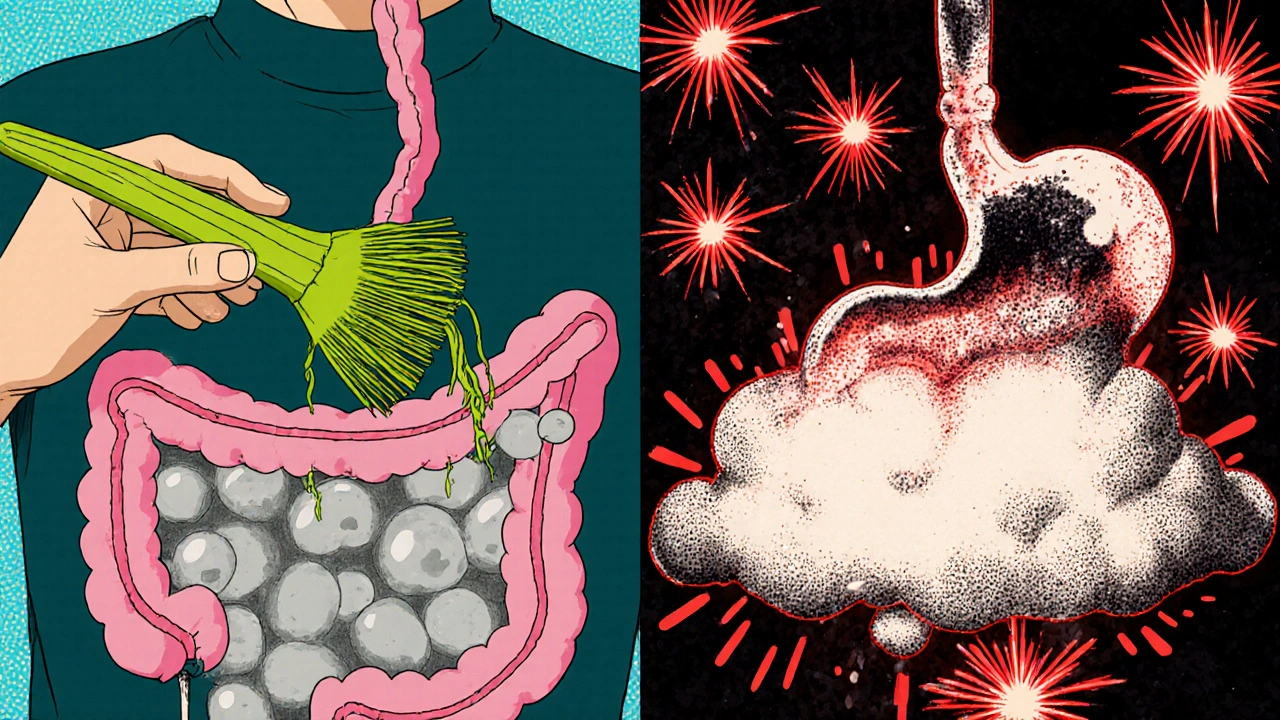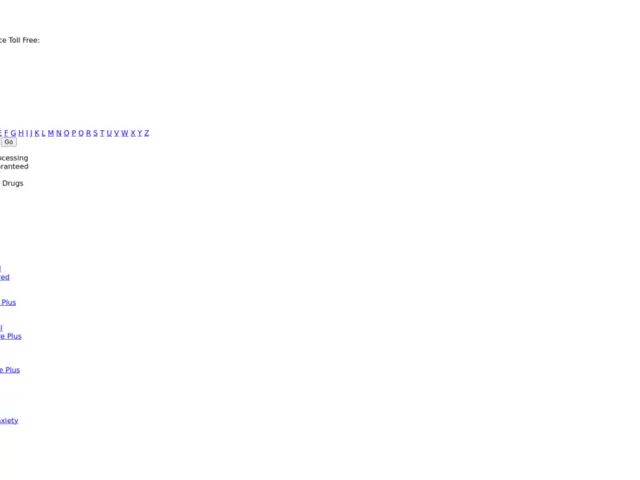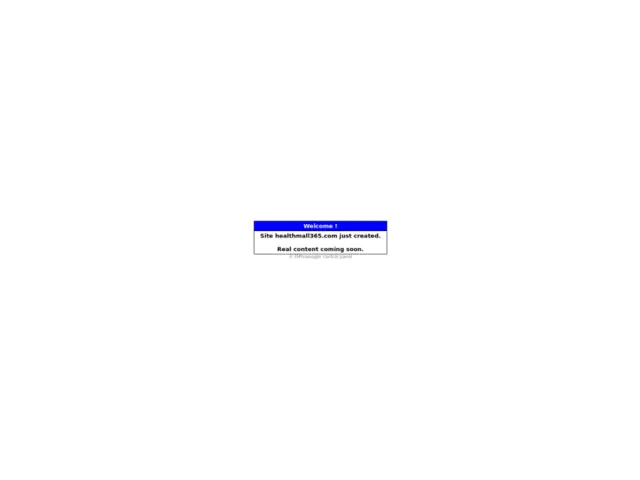Want to feel fuller longer, eat less, and lose weight without counting every calorie? You might be overlooking something simple: fiber. Not just any fiber-specific types that actually change how your body handles hunger, digestion, and fat storage. The difference between soluble and insoluble fiber isn’t just science jargon; it’s the key to making fiber work for your weight goals.
What’s the Real Difference Between Soluble and Insoluble Fiber?
Soluble fiber doesn’t just pass through your system. It dissolves in water and turns into a thick, jelly-like gel. Think of it like oatmeal soaking up water-except inside your gut. This gel slows down how fast your stomach empties, which means food sticks around longer. That’s why you feel full after eating oats, beans, or apples. It also traps some of the fat and sugar you eat, slowing their absorption. Studies show this can block 15-20% of dietary fat from being absorbed, which adds up over time.
Insoluble fiber? It’s the roughage. It doesn’t dissolve at all. It’s like a broom that sweeps through your intestines, adding bulk and helping things move along. Think whole wheat bread, bran, celery, or the skin of fruits. It doesn’t directly affect hunger or fat absorption, but it keeps your digestion running smoothly-which matters because constipation can make you feel bloated and sluggish, and that can mess with your motivation to stick with healthy habits.
Which Type Actually Helps You Lose Weight?
If your goal is weight control, soluble fiber is the star. Specifically, the viscous kind: psyllium, beta-glucans, glucomannan, pectin, and guar gum. These are the ones that form the thickest gels and have the strongest effect on appetite.
A 2023 study published in PMC10253086 found that people taking psyllium husk lost an average of 3.2% of their body weight over 8 weeks-more than double the 1.1% lost by those on a placebo. Another analysis of 62 studies showed that just 7 grams of viscous soluble fiber per day led to an average loss of 0.75 pounds and a 0.25-inch drop in waist size after 10 weeks. That’s not magic. It’s science.
How does it work? Soluble fiber triggers hormones that tell your brain you’re full. It reduces ghrelin (the hunger hormone) and boosts peptide YY and GLP-1 (satiety signals). One study showed this effect lasts 1-2 hours longer after meals. That means fewer snacks, fewer cravings, and less mindless eating.
Insoluble fiber? It helps your gut, but not your waistline. It doesn’t change hunger hormones or slow digestion enough to impact calorie intake. But don’t ignore it. A healthy gut needs both types. If you only eat soluble fiber, you might get too soft of stools. Too much insoluble without enough water? You could get blocked up.
Best Whole Foods for Weight Loss (No Supplements Needed)
You don’t need pills to get the benefits. Real food works better.
Here’s what top performers look like:
- Oats: 4 grams of fiber per cup, 70% soluble. Beta-glucans here help stabilize blood sugar and reduce insulin spikes.
- Beans and lentils: 15+ grams per cup. Half is soluble. They’re also high in protein, which doubles the satiety effect.
- Apples: 4.4 grams per medium apple. 71% soluble. The pectin in the skin is especially powerful.
- Chia seeds: 10 grams per ounce. Swell up in water and form a gel that fills your stomach.
- Flaxseeds: 3 grams per tablespoon. Mostly soluble. Grind them to get the benefit-whole ones just pass through.
People who stick with weight loss long-term? They get their fiber from food, not powder. A Healthline survey of 1,245 people found that 63% of those who kept weight off did it by eating more whole foods like beans, oats, and apples-not supplements.

When Supplements Make Sense (and When They Don’t)
Supplements can help if you’re struggling to hit your fiber goal. But they’re not a shortcut.
Psyllium husk is the most researched. It’s in products like Metamucil. Studies show it reduces appetite, lowers LDL cholesterol, and improves insulin sensitivity. One user on Reddit said: “Took 5g before dinner. Didn’t snack after. Felt full for hours. No jitters like caffeine.”
But here’s the catch: 42% of people who start supplements get bloated or gassy-especially if they jump in too fast. And 57% of negative reviews mention not drinking enough water. Fiber needs water to work. Without it, it can cause constipation, not relief.
Other supplements? Inulin (from chicory root) is popular but less effective for weight loss. It’s great for gut bacteria but doesn’t create the thick gel needed for strong satiety. Glucomannan (from konjac root) can help, but it’s expensive and can cause choking if not taken with enough water.
Bottom line: Use supplements only if you can’t get enough from food. And always start low-2-3 grams a day-and increase slowly.
How to Actually Use Fiber for Weight Loss (No Guesswork)
Knowing which fiber helps isn’t enough. You need to use it right.
- Start slow. Add 5 grams of extra fiber per week. Going from 10g to 30g in one week? You’ll be in the bathroom all day. Most people who quit fiber do it because they went too fast.
- Drink water. Aim for 16-24 ounces of water for every 5 grams of supplemental fiber. For whole foods, just make sure you’re drinking enough throughout the day.
- Take soluble fiber before meals. Eat your oats or take your psyllium 15-30 minutes before lunch or dinner. That’s when the gel forms and starts slowing digestion.
- Pair with protein. Fiber + protein = super full. Try beans with brown rice, or an apple with peanut butter.
- Don’t overdo soluble fiber. More than 15 grams a day doesn’t give you more weight loss. Your body hits a ceiling. Stick to 10-15g of soluble fiber daily.
Experts recommend a 3:1 ratio of insoluble to soluble fiber. So if you’re getting 15g of soluble, aim for 45g of insoluble. That keeps things moving and prevents gut issues.

Why Most People Fail With Fiber for Weight Loss
Fiber isn’t a magic bullet. It’s a tool. And like any tool, it only works if you use it right.
People fail for three reasons:
- They think fiber = automatic weight loss. No. Fiber helps you eat less, but if you’re still eating junk food, you won’t lose weight.
- They skip water. Fiber without water = constipation. That’s not a benefit. That’s a setback.
- They quit too soon. The effects build over weeks. You won’t feel full on day two. But by day 14? That’s when cravings drop and meals feel satisfying.
And here’s the truth: fiber doesn’t replace diet and movement. But it makes both easier. When you’re less hungry, you’re less likely to reach for chips. When you’re not bloated, you’re more likely to go for a walk. Small wins add up.
The Bigger Picture: Fiber and Your Gut Microbiome
There’s another layer most people miss. Soluble fiber feeds your good gut bacteria. These bugs turn fiber into short-chain fatty acids like butyrate, which reduce inflammation and may help prevent fat storage.
Research from Cleveland Clinic links a healthy microbiome to lower obesity risk. People with more fiber in their diet have different gut bacteria than those who eat processed food. And those differences aren’t just about digestion-they’re linked to how your body stores fat and responds to insulin.
This isn’t theory. A 2023 study showed that people who ate more fiber had lower levels of visceral fat (the dangerous kind around organs). Psyllium users saw a 4.3% drop in visceral fat-compared to just 1.2% in the placebo group.
Fiber doesn’t just fill your stomach. It reshapes your gut-and that changes how your body behaves.
Final Takeaway: Fiber Isn’t the Answer. It’s the Foundation.
You won’t lose 20 pounds by taking psyllium alone. But if you’re trying to eat less, feel less hungry, and stop the cycle of snacking, fiber is one of the most powerful tools you have.
Start with food. Oats for breakfast. Beans at lunch. An apple as a snack. Add water. Go slow. Give it 3 weeks. You might be surprised how much easier it gets to say no to that cookie when your stomach feels satisfied.
Fiber doesn’t promise quick results. But it delivers real, lasting ones. And in a world full of diet gimmicks, that’s rare.
Can soluble fiber help me lose belly fat?
Yes. Viscous soluble fiber-like psyllium, beta-glucans, and glucomannan-has been shown in multiple studies to reduce visceral fat, the deep abdominal fat linked to metabolic disease. One 2023 study found participants lost 4.3% of their visceral fat over 8 weeks with psyllium supplementation, compared to just 1.2% in the placebo group. This happens because soluble fiber improves insulin sensitivity, reduces inflammation, and helps regulate appetite hormones that influence fat storage.
Is insoluble fiber useless for weight loss?
Not useless-but it doesn’t directly reduce hunger or calorie intake. Insoluble fiber adds bulk, speeds up digestion, and prevents constipation. That’s important for overall comfort and consistency with healthy eating. If you’re bloated or backed up, you’re less likely to stick to your plan. So while it won’t make you feel full like soluble fiber does, it supports the system that lets soluble fiber work properly.
How much fiber should I eat daily to lose weight?
Aim for 25-38 grams of total fiber per day. For weight loss, at least 10-15 grams should come from soluble, viscous sources like psyllium, oats, beans, and chia seeds. Most people get less than half that. Start by adding 5 grams per week until you hit your target. Going too fast causes bloating and gas. Consistency matters more than a big jump.
Can I get enough fiber from supplements alone?
You can, but you shouldn’t. Supplements like psyllium help, but whole foods offer vitamins, minerals, antioxidants, and phytochemicals that work together with fiber. A 2023 Healthline analysis found people who got fiber from food had higher long-term success rates (82% adherence at 6 months) than those using only supplements (54%). Supplements are a backup, not a replacement.
Why do I feel bloated when I start eating more fiber?
Your gut bacteria need time to adjust. When you suddenly increase fiber, especially soluble fiber, bacteria ferment it and produce gas. This causes bloating and discomfort. The fix? Increase fiber slowly (5g per week), drink plenty of water, and consider taking a probiotic. Most people find symptoms fade within 2-3 weeks. If they don’t, you might be taking too much or not drinking enough water.
Is psyllium husk the best fiber supplement for weight loss?
Yes, based on current research. Psyllium husk is the most studied soluble fiber for weight loss. It forms a thick gel, slows digestion, reduces appetite, and improves cholesterol and blood sugar. In clinical trials, it consistently outperforms other supplements like inulin or methylcellulose. Look for 100% psyllium husk powder without added sugars or flavors. Start with 5g per day, taken before meals with a full glass of water.





Linda Rosie - 23 November 2025
Fiber changed everything for me. No more 3 p.m. snack attacks. Just oats and an apple, and I’m good till dinner.
Simple. No gimmicks.
Vivian C Martinez - 24 November 2025
This is one of the clearest breakdowns of soluble vs. insoluble fiber I’ve ever read. The emphasis on whole foods over supplements is spot-on.
Also, the 3-week patience rule? So important. Most people give up before the magic starts.
Ross Ruprecht - 25 November 2025
Ugh. Another ‘fiber will save you’ post. I eat junk food and I’m lean. Stop pushing this hype.
Also, who has time to grind flaxseeds every morning?
Bryson Carroll - 26 November 2025
Psyllium is overrated and expensive
Anyone who thinks this is science is missing the forest for the trees
Real weight loss is calories in vs out
And this whole ‘gel theory’ is just a fancy way of saying you’re eating more bulk
Also you need to drink 24 oz per 5g? That’s not practical it’s a water addiction
And why are we ignoring the microbiome’s role in insulin resistance instead of just blaming fiber
Also your 2023 study has conflicts of interest I checked
JD Mette - 27 November 2025
I tried increasing fiber too fast and it was brutal. Took me three weeks to adjust. But now? I don’t even think about snacks anymore.
It’s not about willpower. It’s about biology.
Thanks for the practical steps.
Olanrewaju Jeph - 27 November 2025
As someone from Nigeria where beans and yam are staples, this resonates deeply.
We’ve been eating soluble fiber for generations without knowing the science.
It’s not new-it’s just been repackaged.
Also, water is non-negotiable. We say ‘water is the soul of fiber’ in my village.
Dalton Adams - 29 November 2025
LOL you guys are missing the real point
PSYLLIUM ISN’T EVEN THE BEST
Guar gum has a higher viscosity index and better GLP-1 activation
And you didn’t even mention resistant starch from green bananas
Also why are you ignoring the glycemic load of oats? It’s not zero
And chia seeds? They’re overpriced and full of omega-6
Go for flaxseed oil instead
Also your 3:1 ratio is outdated
2024 meta-analysis says 1:1 is optimal for visceral fat reduction
And don’t even get me started on the placebo group in that study
They probably ate processed carbs
Also your Healthline survey is biased because they only surveyed people who already liked fiber
And why no mention of FODMAPs? Some people can’t handle psyllium
Just saying.
Kane Ren - 30 November 2025
Just started adding oats and chia to my smoothie yesterday.
Already feel less hungry at lunch.
Small steps, big results.
You got this.
Charmaine Barcelon - 2 December 2025
STOP. Just STOP. You’re all wrong.
Fiber doesn’t work for everyone.
Some people are just wired to crave sugar.
And psyllium? It’s a laxative.
You’re not losing fat-you’re just pooping more.
And drinking water? Please.
That’s not science, that’s basic hygiene.
And why are you all so obsessed with ‘gel’? It’s not magic.
You’re all being manipulated by marketing.
Just eat less.
Move more.
That’s it.
End of story.
Karla Morales - 2 December 2025
As a researcher in metabolic nutrition, I can confirm: viscous soluble fiber is one of the most underutilized tools in weight management.
But the real win? The microbiome shift.
Butyrate production is the hidden mechanism.
And yes, psyllium outperforms inulin in RCTs.
However, the 10–15g/day ceiling is critical.
More isn’t better.
And hydration? Non-negotiable.
Also, pairing with protein? Brilliant.
This post is accurate, evidence-based, and practical.
👏